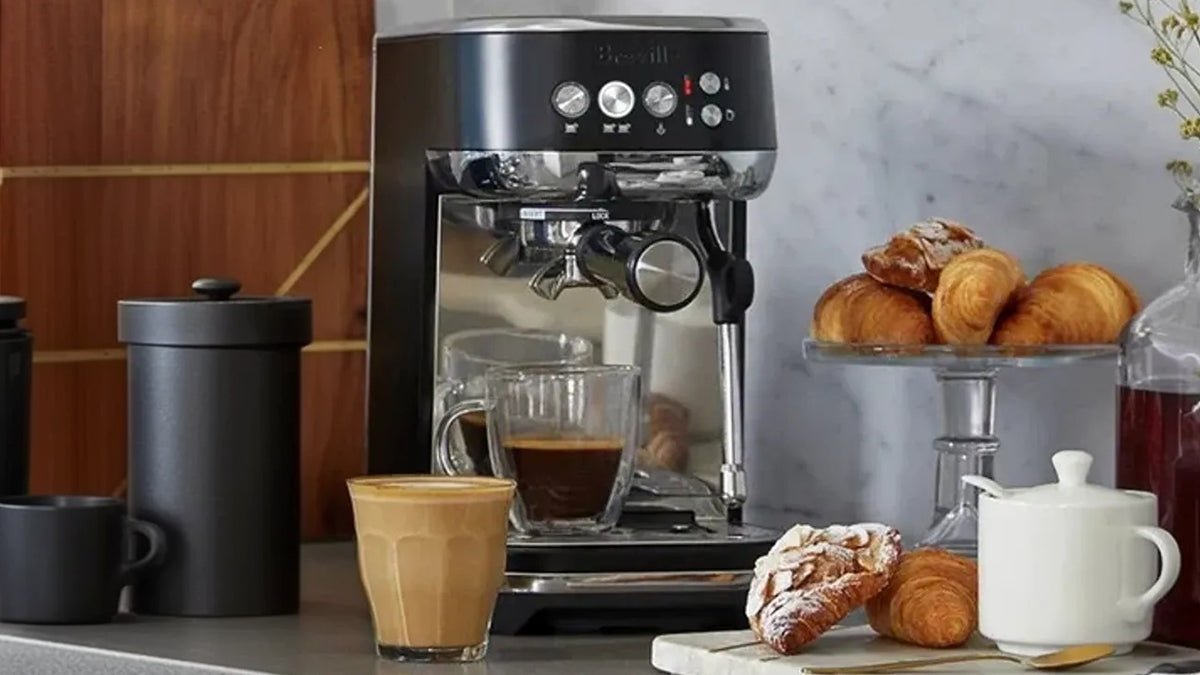To ensure quality coffee and extend the lifespan of your espresso machine, regular maintenance is essential. One of the main enemies of your machine is limescale, a mineral buildup that forms over time. Understanding the causes of limescale, how to prevent it, and what the optimal water hardness is will help you get the best out of your espresso machine.
What is Limescale and Why Does It Form?
Limescale is an accumulation of minerals, primarily calcium and magnesium, that deposits on the internal components of your machine as the water heats. The harder the water, meaning the richer it is in minerals, the higher the risk of limescale formation. This buildup can impair your machine's performance, reduce water temperature, and ultimately affect the taste of your espresso.
Main Causes of Limescale Formation
- Water Hardness: Water rich in calcium and magnesium promotes limescale formation.
- Frequency of Use: The more frequently the machine is used, the higher the risk of limescale buildup.
- Water Temperature: Higher temperatures can accelerate the precipitation of minerals.
Consequences of Limescale Buildup
Limescale can cause numerous problems:
- Reduced Performance: Limescale buildup in the machine can block the pipes, reducing water flow.
- Inconsistent Temperature: Limescale acts as an insulator, preventing the heating element from working efficiently, leading to inconsistent water temperature.
- Degraded Coffee Quality: Espresso made with a machine full of limescale will have less precise flavors, reduced richness, and may develop undesirable bitter notes.
How to Prevent Limescale Formation
To prevent limescale buildup, it is important to control the quality of the water you use. Here are some tips to reduce the risks:
- Use Filtered Water: Using a water filter can significantly reduce the mineral content of your water, thus preventing limescale formation.
- Control Water Hardness: Ideally, use water with a hardness between 70 and 100 ppm (parts per million) of minerals. Water that is too soft can be corrosive, while hard water will increase limescale formation.
- Regular Descaling: Perform descaling every 2 to 3 months, or more frequently if you notice performance issues. Use a product specifically designed for descaling espresso machines to avoid damaging the components.
How to Descale Your Espresso Machine
The descaling process is relatively simple and can be done at home:
- Prepare a Descaling Solution: Use an appropriate descaling product and mix it with water according to the manufacturer's instructions.
- Fill the Water Tank: Pour the descaling solution into the machine's reservoir.
- Run the Cycle: Operate the machine as if you were making coffee, but without any ground coffee in the portafilter. Let the solution run through the system.
- Rinse: Once descaling is complete, fill the reservoir with clean water and run several rinse cycles to remove any residue of the descaling product.
SEO Tip: Include keywords such as "how to descale an espresso machine", "prevent limescale in coffee machine", and "regular espresso machine maintenance" to improve search engine visibility.
The Importance of Regular Espresso Machine Maintenance
Regular maintenance of your espresso machine goes beyond descaling. It is also essential to clean the portafilter, the shower screen, and to empty the drip tray regularly. These steps will help maintain the quality of your beverages and extend the life of your machine.
Cleaning Other Components
- Portafilter: Clean the portafilter after each use to avoid coffee residue buildup.
- Shower Screen: Regularly descale and clean the shower screen to ensure proper water distribution.
- Drip Tray: Empty and clean the drip tray daily to prevent bad odors.
Deep Cleaning Internal Components
In addition to descaling, it is recommended to deep clean the internal components of the machine every 6 to 12 months. This cleaning removes coffee oils that accumulate in the pipes and can alter the taste of your beverages. Use products specifically designed for espresso machines and follow the manufacturer's instructions.
Choosing the Right Water for Your Espresso Machine
The choice of water is crucial to avoid limescale buildup and ensure optimal coffee extraction. The ideal water should have moderate hardness, balancing essential minerals and purity. Water that is too soft can be corrosive, while hard water promotes limescale buildup.
Tip: Avoid distilled water, as it lacks minerals and can damage certain parts of your machine. Opt for filtered water or bottled water with a mineral content between 70 and 100 ppm.
Common Mistakes to Avoid in Espresso Machine Maintenance
Using Inappropriate Products
Many people use household cleaning products that are not suitable for descaling their espresso machines. These products can damage the internal components of the machine. Always use descalers specifically designed for coffee machines.
Forgetting to Rinse After Descaling
After descaling, it is crucial to thoroughly rinse the machine to remove any traces of the descaling product. Insufficient rinsing can alter the taste of your beverages and even be harmful to health.
Benefits of Proper Espresso Machine Maintenance
Proper maintenance of your espresso machine has numerous benefits:
- Improved Coffee Quality: Regular maintenance ensures optimal extraction and preserves the aromas of the coffee.
- Extended Lifespan: By taking care of your machine, you extend its lifespan and avoid costly repairs.
- Cost Reduction: Regular maintenance helps prevent breakdowns and repairs, reducing long-term costs.
Maintaining Professional Espresso Machines
If you own a professional espresso machine, maintenance is even more crucial. These machines are used more frequently and therefore require more regular descaling and cleaning. Here are some additional tips:
- Daily Cleaning: Clean the portafilters, group heads, and steam wands every day to ensure optimal hygiene.
- Group Head Rinsing: After each extraction, rinse the group heads to remove coffee residues.
- Monthly Descaling: Depending on water hardness, perform monthly descaling to avoid limescale buildup.
FAQ on Espresso Machine Maintenance
-
How often should I descale my espresso machine?
For moderately hard water, descaling every 2 to 3 months is recommended. -
Can I use vinegar to descale my machine?
It is best to use a descaling product specifically designed for espresso machines, as vinegar can be too acidic and damage some components. -
Why is filtered water important for my machine?
Filtered water reduces mineral content, preventing limescale buildup and improving the quality of your coffee. -
How do I clean the steam wand?
After each use, purge the steam wand to remove milk residues. Then clean it with a damp cloth to prevent buildup. -
What is the average lifespan of a well-maintained espresso machine?
With regular maintenance, an espresso machine can last between 5 and 15 years, depending on component quality and frequency of use.
Conclusion: The Importance of Regular Maintenance for Perfect Coffee
In conclusion, maintaining your espresso machine is a crucial step to ensure the quality of your beverages and extend the life of your equipment. By following these tips and performing regular maintenance, you will enjoy delicious espressos and avoid the hassle of breakdowns and costly repairs. Remember that the key to great coffee lies not only in the beans you use but also in the condition of your machine.
Take care of your espresso machine, and it will take care of your precious coffee moments! By understanding the causes of limescale, knowing how to prevent it, and performing proper maintenance, you will ensure optimal performance and delicious coffee day after day.



Leave a comment
This site is protected by hCaptcha and the hCaptcha Privacy Policy and Terms of Service apply.